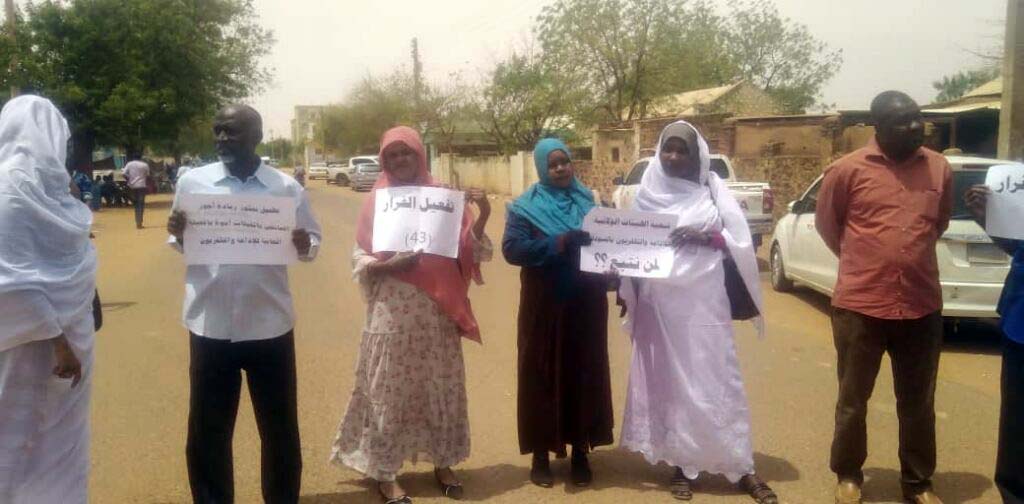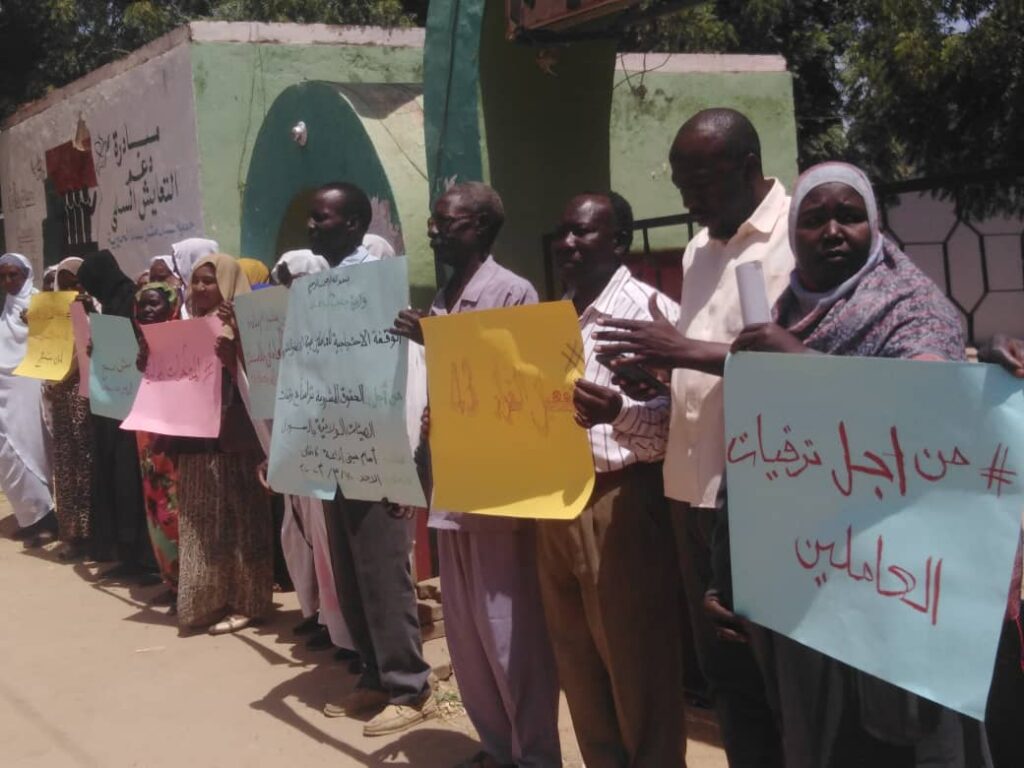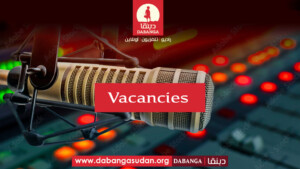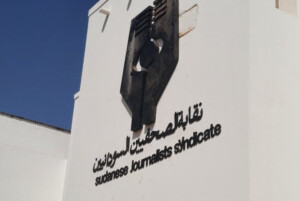Sudan: Radio and television workers threaten to strike

Radio and television workers demand their rights (Eisa El Dakir)
KADUGLI / EL FULA / EL FASHER / NYALA –
On Sunday, radio and television workers in Darfur and Kordofan staged a number of protest vigils, demanding the state branches to be directly linked to the National Radio and Television Corporation and to be paid the same wages as their colleagues in Khartoum. They threaten to down tools if their demands are not met within three days. The Sudanese Teachers Committee extended the suspension of their strike for another two weeks.
The staff members of the South Kordofan Radio and Television Corporation want the funds and their salaries to be raised to the national level, journalist Abdelrahim Markazo reported yesterday.
The vigil in front of the South Kordofan radio buildings in the state capital Kadugli called for “the full implementation of Resolution 43 of 1994” according to which press institutions in the states were established.
The head of the South Kordofan Radio and Television Demand Committee, Ismail Bakheet, told Markazo from Kadugli that “the state press institution now exist 29 years and the salaries are still being paid from external funds”.
Bakheet said that they submitted their demands to the Sovereignty Council. “If they do not respond positively within 72 hours, we will be forced to embark on a comprehensive strike”.
Babikir Sangadi, who works for the technical department of Kadugli Radio said that the financial support the government of South Kordofan is insufficient. “It does not even cover the operation costs,” he explained. “For this reason, we were forced to reduce the daily broadcasting hours from 12 to five hours.”
In El Fula, capital of West Kordofan, the vigil was attended by the director of the state radio and television branch, Sabir Abdelkarim. They raised banners calling for the implementation of Resolution 43, delayed financial dues and post-service benefits, and warned that they would stop broadcasting if their demands are not met.
Radio programme-maker Eisa El Dakir reported that the vigil was addressed by Sabri Jubara, Secretary of the West Kordofan government, who acknowledged the legitimacy of the protest and pledged to discuss the matter with the state Ministry of Finance. Jubara said he would also submit a memorandum to the federal Ministry of Governance.

Staff members of the North Darfur Radio and Television branch held a vigil in the state capital El Fasher on Sunday.
Adam Ishag, head of the Claims Committee, called on the authorities in Khartoum “to resolve the issues of the radio and television workers” and as well threatened with “a comprehensive strike”.
Radio and television workers in South Darfur as well staged a protest vigil. Ahmed Deifallah, Commissioner of State Bodies Workers in Darfur, told Radio Dabanga from Nyala that the protesters called for the implementation of the demands included in the memorandum that was submitted to the central government in June last year.
Teachers
The Sudanese Teachers Committee announced on Saturday that the suspension of the government teachers strike would be extended with two weeks, starting on Sunday.
The teachers’ negotiation committee will contact the teachers’ committees in the states to follow up on the implementation of what was agreed upon with the authorities in Khartoum.
The committee itself will engage with the federal Ministry of Education to hear about its position on postponing primary and secondary school exams as the students missed many lessons due to the nationwide strike launched in December last year.
Two weeks ago, the Sudanese Teachers Committee decided to temporarily suspend their strike, while teachers in several states announced the continuation of the strike until the demands are met. Earlier in February, the teachers expressed their doubt about the implementation of the previous pledges of the federal Ministry of Finance to pay their outstanding dues and delayed salaries.
The ministry refused in October last year to meet their demands. In January, it promised to pay the delayed dues, but would not be able to increase the minimum wage, another important demand of the government teachers.











 and then
and then